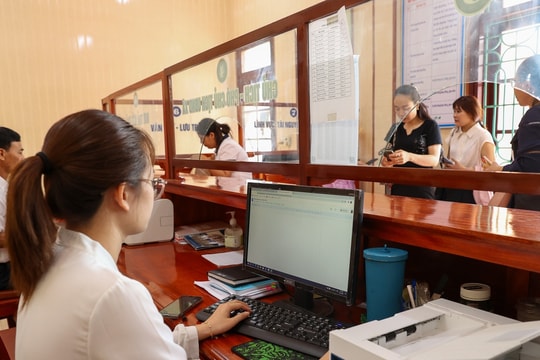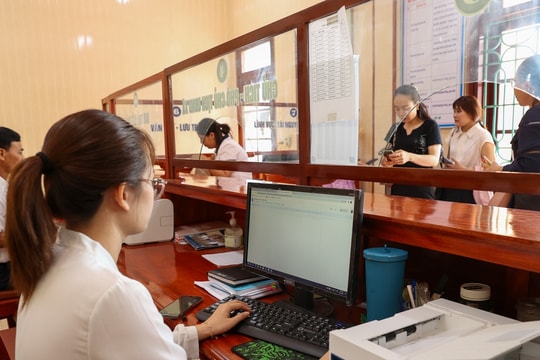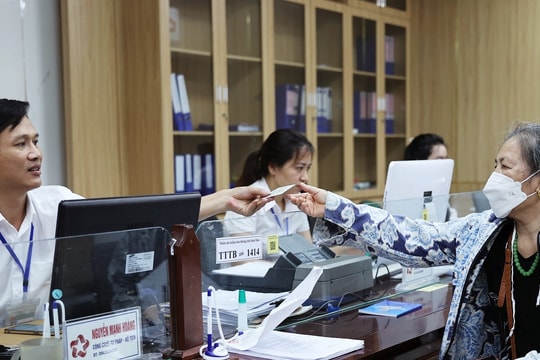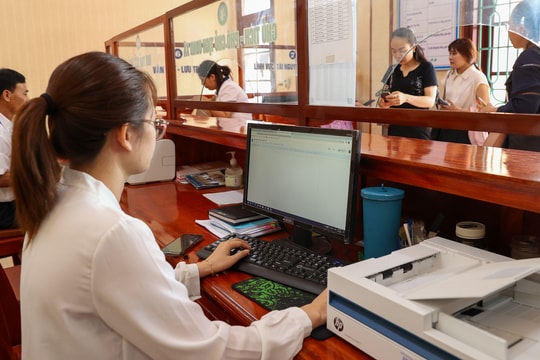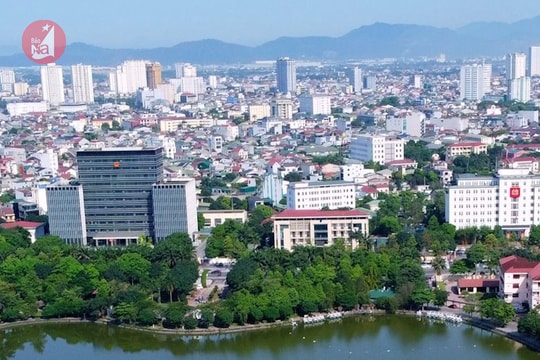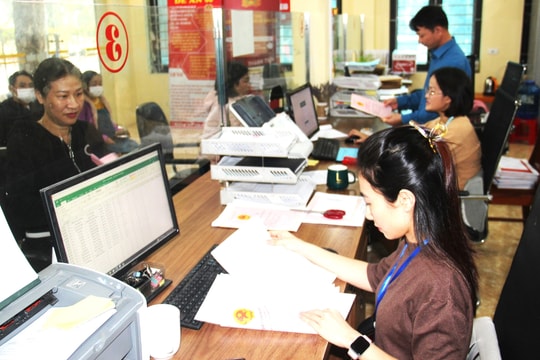Reduce at least 400,000 staff in the next 4 years
Reducing the commune level, flexibly organizing provincial departments and branches, reducing units under ministries... are solutions stated in the Central Resolution.
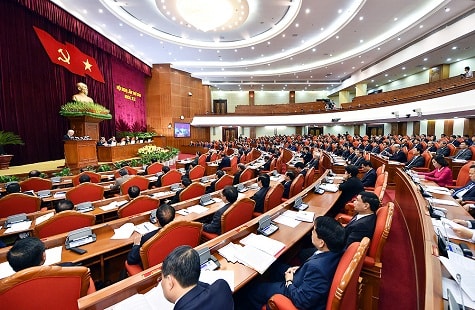 |
| The 6th Central Conference, 12th tenure issued a Resolution on innovation and reorganization of the apparatus. Photo: VGP/Quang Hieu |
The Party Central Committee has just issued Resolution No. 18 on continuing to innovate and reorganize the political system to make it lean, efficient, and effective.
Mr. Nguyen Duc Ha (member of the draft Resolution editorial team, Central Organizing Committee) said that the Resolution sets out four specific target groups until 2021, including reducing the staff by at least 10% compared to 2015.
According to him, there are currently four million people receiving salaries from the state budget (not counting the armed forces). With the above goal, the task of the agencies in the next four years is to reduce at least 400,000 staff.
Collapse commune level
The Central Resolution also proposed to rationally arrange and reduce commune-level administrative units that have not met 50% of the standards on population size and natural area; and reduce the number of villages and residential groups.
Mr. Ha said that current regulations require communes to be 30 square kilometers and have 5,000 people or more, however, nationwide there are 724 communes that have not met half of the criteria for population and natural area; there are even many communes and wards that are less than one square kilometer.
"Smaller communes will be merged. Currently, each commune has an average of over 20 civil servants, not to mention non-professional workers. Merging hundreds of communes will help save the budget thousands of billions of dong each year," said Mr. Ha.
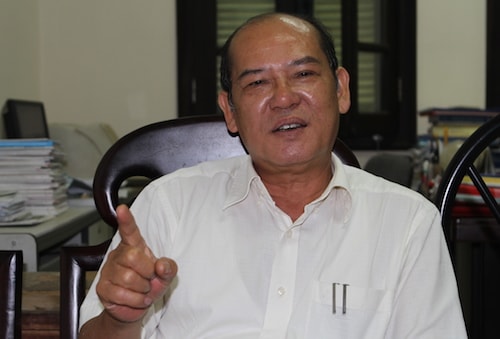 |
| Mr. Nguyen Duc Ha said that the Party Central Committee set a target of reducing the payroll by at least 10% by 2021 compared to 2015. Photo: Vinh An |
Flexible organization of provincial departments
Regarding the organization of specialized agencies under the provincial People's Committee, Minister of Home Affairs Le Vinh Tan said that in the future, there will be strong decentralization to localities. "We will not apply a common framework to all provinces and cities as before, but create an open mechanism, giving initiative to the grassroots," he said.
Specifically, specialized agencies under the provincial People's Committee will be organized into two groups, including departments that every locality has, called "hard" departments such as the Department of Education and Training, Department of Health...
The remaining group is the departments organized in accordance with the urban government model, rural government model and specialized departments ("soft" departments), for example the Department of Foreign Affairs, the Ethnic Minorities Committee, the Department of Tourism...
"Local authorities have the right to consider and decide whether to merge, dissolve, or establish any departments or agencies to suit the socio-economic conditions in the area," the Minister of Home Affairs emphasized.
Similarly, the Central Government only provides general regulations on the number of deputies and localities are allowed to arrange specific positions, as long as they do not exceed the framework.
Explaining the above content, Mr. Nguyen Duc Ha gave an example: a province has 15 departments and each department has 3 deputies on average, the total will be 45 deputies. "If the Department of Agriculture has a lot of work, the province can arrange 4 deputy directors, if the Department of Justice has little work, then one deputy, as long as the whole province does not have more than 45 deputy personnel according to regulations", Mr. Ha said and said that cutting down on leaders and managers will help reduce the burden on the budget in terms of vehicles, headquarters, allowances...
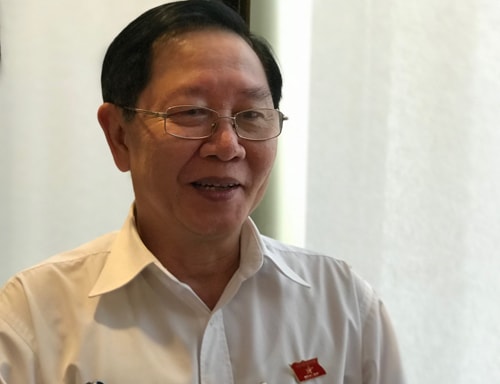 |
| Minister of Home Affairs Le Vinh Tan said local departments will be organized flexibly. Photo: Hoai Thu |
Fundamentally reduce the number of units within sets
Regarding the organization of ministries and branches, Mr. Nguyen Duc Ha said the Central Committee agreed to request streamlining internal focal points, fundamentally reducing the number of general departments, bureaus, divisions, and offices; not establishing new organizations, not establishing offices within departments...
"After three terms, from the 11th term until now, the number of general departments has doubled, to 42 units. That means the apparatus has 42 general directors, about 200 deputy general directors, not to mention the units within the general department that have also arisen. Just this reduction alone is very significant," Mr. Ha emphasized.
In addition, according to him, the Party Central Committee has requested continued research to clarify the theoretical and practical basis for the multi-sectoral and multi-field management scope of a number of ministries and branches, especially those agencies with similar and overlapping functions and tasks, in order to have appropriate solutions.
"This research is to have a basis for arranging and reducing focal points in the next term, such as: Transport - construction sector; finance - investment planning; ethnic - religious fields...", Mr. Ha said.
After the organization is reorganized, we will discuss the salary mechanism.
In reality, this is not the first time efforts to reorganize the apparatus and streamline the payroll have been implemented. However, over the years, "the more we talk about streamlining the apparatus, the more it bloates, so what is different this time?", Mr. Ha said that in the past, the management of the apparatus and payroll was dispersed.
Specifically, the Central Organizing Committee manages the organizational system of the Party and mass organizations; the Ministry of Home Affairs manages the state payroll; the National Assembly Standing Committee manages the National Assembly payroll; the President is the Office of the President and the judiciary...
According to him, this time the Central Committee clearly stated that the Party unifies leadership in building and managing the organization, apparatus, and staffing of the entire political system; at the Central level, the direct leadership is the Politburo; at the local level, the direct leadership is the standing committee of the provincial Party Committee.
"If a ministry or sector wants to add a department, bureau or equivalent or more, it must ask for the opinion of the Politburo. So it is not easy, or more accurately, it is not possible to arbitrarily create a new apparatus and staff," said Mr. Ha.
In addition, with the specific goals set out in the Resolution, in the coming time, competent authorities will assign specific targets to each agency and unit. "For example, if the payroll is reduced by 10%, you will be rewarded if you perform well, otherwise there will be sanctions. This is the criterion for considering and promoting cadres," said Mr. Ha.
Minister of Home Affairs Le Vinh Tan also said that the issue of streamlining the payroll will be carried out based on three main pillars: reducing focal points; reorganizing the internal structure of ministries and branches and arranging the functions and tasks of each unit so that they do not overlap or overlap.
"The 7th Central Conference next year will discuss the salary mechanism, based on the resolution of the two Resolutions this time on reorganizing the apparatus in the political system and innovating public service units," said Mr. Tan.
According to VNE

